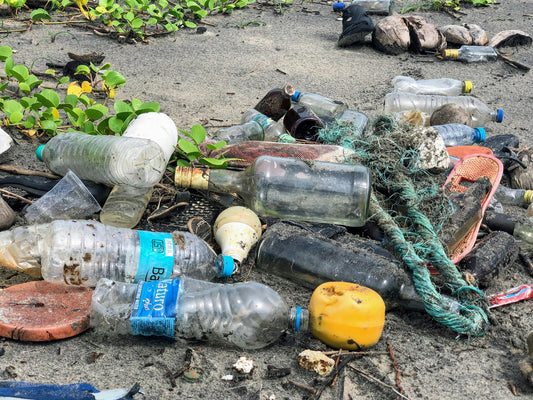Share
Governments at the Cop16 summit in Colombia emphasized the interconnectedness of climate and nature collapse.
Extreme Weather and Ecosystem Collapse:
The summit took place amidst extreme weather events and ecosystem collapse, with unyielding wildfires consuming over 22 million hectares in the Amazon rainforest and severe flooding in Spain resulting in a death toll of over 200.
Carbon Sinks Failing:
Boreal forests across Siberia, Scandinavia, Alaska, and Canada are showing alarming signs of distress due to drought, tree mortality, and logging activities, which are causing their carbon sinks to falter.
Interconnected Challenges:
Climate and nature have traditionally been regarded as distinct challenges, but representatives highlighted the vital relationship between them. A consensus was reached on a document addressing the connections between climate and nature, but calls for a phase-out of fossil fuels were not included.
UK Environment Secretary’s Remarks:
Steve Reed noted that the intertwined nature of climate and biodiversity was a key takeaway from the summit, contrasting it with the UK and broader global north where discussions often focus more on climate and net zero targets.
Colombia’s Environment Minister’s Perspective:
Colombia’s environment minister, Susanahamad, emphasized the need to elevate nature’s importance alongside global efforts to reduce carbon emissions. She cautioned that effective reductions in greenhouse gas outputs must be paired with the protection and rehabilitation of natural ecosystems.
Global Implications:
Natural carbon sinks, including oceans, forests, and soils, currently absorb about half of all human-generated emissions, providing a buffer against the full impact of fossil fuel pollution. Without these ecosystems, the pace of global warming would increase dramatically.
Role of Forests:
Forests play a critical role in combating climate change. Jiwoh Abdulai, Sierra Leone’s environment and climate change minister, expressed concern that land sinks absorbed less carbon in 2023, asserting that forests are globally critical infrastructure.
Community Impact:
The degradation of forests is already impacting rural communities reliant on rain-fed agriculture, leading to unpredictable yields, diminished income, and increased food insecurity. As land fertility declines, communities are encroaching further into forested areas.
Global Consensus:
The summit concluded with a consensus on addressing the connections between climate and nature, but without including language on a phase-out of fossil fuels.
Extreme Weather and Ecosystem Collapse:
The summit took place amidst extreme weather events and ecosystem collapse, with unyielding wildfires consuming over 22 million hectares in the Amazon rainforest and severe flooding in Spain resulting in a death toll of over 200.
Carbon Sinks Failing:
Boreal forests across Siberia, Scandinavia, Alaska, and Canada are showing alarming signs of distress due to drought, tree mortality, and logging activities, which are causing their carbon sinks to falter.
Interconnected Challenges:
Climate and nature have traditionally been regarded as distinct challenges, but representatives highlighted the vital relationship between them. A consensus was reached on a document addressing the connections between climate and nature, but calls for a phase-out of fossil fuels were not included.
UK Environment Secretary’s Remarks:
Steve Reed noted that the intertwined nature of climate and biodiversity was a key takeaway from the summit, contrasting it with the UK and broader global north where discussions often focus more on climate and net zero targets.
Colombia’s Environment Minister’s Perspective:
Colombia’s environment minister, Susanahamad, emphasized the need to elevate nature’s importance alongside global efforts to reduce carbon emissions. She cautioned that effective reductions in greenhouse gas outputs must be paired with the protection and rehabilitation of natural ecosystems.
Global Implications:
Natural carbon sinks, including oceans, forests, and soils, currently absorb about half of all human-generated emissions, providing a buffer against the full impact of fossil fuel pollution. Without these ecosystems, the pace of global warming would increase dramatically.
Role of Forests:
Forests play a critical role in combating climate change. Jiwoh Abdulai, Sierra Leone’s environment and climate change minister, expressed concern that land sinks absorbed less carbon in 2023, asserting that forests are globally critical infrastructure.
Community Impact:
The degradation of forests is already impacting rural communities reliant on rain-fed agriculture, leading to unpredictable yields, diminished income, and increased food insecurity. As land fertility declines, communities are encroaching further into forested areas.
Global Consensus:
The summit concluded with a consensus on addressing the connections between climate and nature, but without including language on a phase-out of fossil fuels.
We hope you enjoyed this article. Please feel free to leave a comment below if you want to engage in the discussion.
If you want to read more like this, make sure to check out our Blog and follow us on Instagram. If you are interested in truly sustainable products, check out our Shop.
Check out the original source here.








